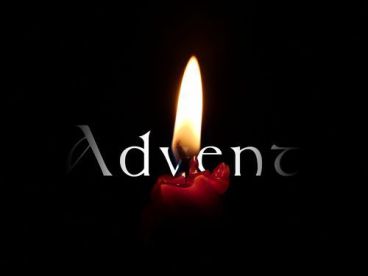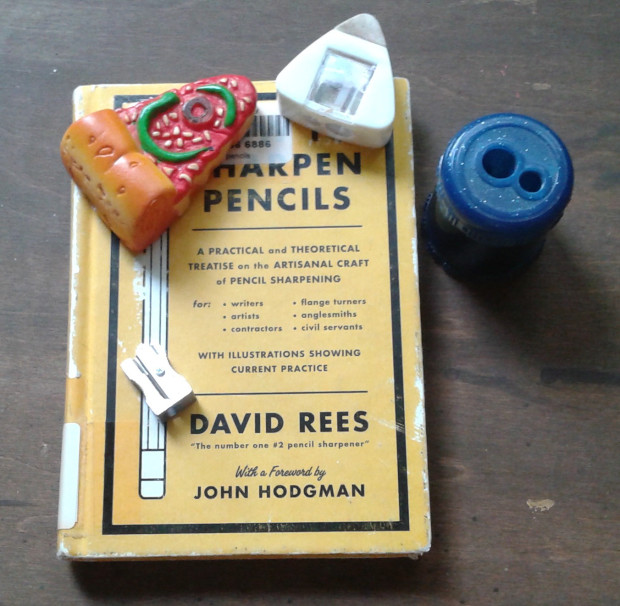Luke 1.46-55
My soul magnifies the Lord, and my spirit rejoices in God my Savior, for he has looked with favor on the lowliness of his servant. Surely, from now on all generations will call me blessed; for the Mighty One has done great things for me, and holy is his name. His mercy is for those who fear him from generation to generation. He has shown strength with his arm; he has scattered the proud in the thoughts of their hearts. He has brought down the powerful from their thrones, and lifted up the lowly; he has filled the hungry with good things, and sent the rich away empty. He has helped his servant Israel, in remembrance of his mercy, according to the promise he made to our ancestors, to Abraham and to his descendants forever.
There’s a grocery right around the corner from my house and I go there way too often. I’d like to blame it on the strange hours of church work, or my incredible cooking skills that sends me off looking for strange and rare ingredients, but honestly having a toddler requires visiting the grocery store with regularity.
I go enough to know when not to go. For instance: Sunday afternoons are the absolute worst. They are the worst because people like me remember all the things they forget to pick up earlier in the week and decide to go at the exact same time as everyone else.
And during the holiday season, it’s all the worse.
So, of course, it was on Sunday afternoon that I found myself at the grocery store with the always wonderful assortment of necessary items in my basket: baby wipes, chocolate morsels, and deodorant.
And I was not alone: every aisle was filled with families and individuals frantically seeking out all the items on their list. Some moved at a snail’s pace checking all of the nutritional values for every single item, while others were just swiping items into their carts indiscriminately. Like all stores around this season, there were older couples smiling at babies, young couples avoiding the babies, and babies crying at everyone.
I held my requisite items and dashed as quickly as I could to the “10 Items or Less” aisle which, of course, was filled with many people with way more than 10 items. And so, I practiced my Christian virtue, and I tried being patient and non-judgmental.
And that’s when the fight broke out.
Four people up from me in the line stood a young woman having just shoved the cashier across the conveyer belt. From my vantage point I could only make out brief words and lots of loud noises. There was some disagreement about payment, and then insults started flying, and then arms started moving, and the rest of us in line just stood there doing what we do best when we go to the grocery store: we distracted ourselves with the trite headlines on bad magazines, we glanced at our watches, and rechecked our email inboxes on our phones for the third time in a row.
Eventually, after the items had been sorted and the argument came to its conclusion with the manager stepping in, the young woman began weeping. “I’m just so hungry,” she said, “please let me take something.” And the cashier politely responded, “Ma’am, if we gave you something for free we’d have to give something to everybody.” And with that, they told her to leave or they’d call the police.
And we all stood there, doing nothing.
Today is the 4th, and final, Sunday of Advent. Some of you are here because you’re eagerly awaiting tonight and tomorrow morning, some of you are probably thinking more about what’s under the tree than what’s in store for worship, some of you are waiting in deep grief thinking about how all the best Christmases are behind you, and still yet some of you are here with the hope that you will receive a little more hope.
This is the day when the pre-Christmas frenzy is at its zenith. Many of you will rush out of church this morning to take care of all the remaining items on your list because Christmas hits us like a brick wall tomorrow. And it is at this precise moment, with all the fear and fervor, that we are treated to the voice of a poor young Jewish girl with a song of praise.
Mary sings her song in declaration of the new arrival of God made manifest in her womb. She not only accepts her call to bear God in the flesh, but also marvels at God’s amazing grace that will, and perhaps already has, come to fruition in the promise in her womb.

Mary’s song, her Magnificat, begins by celebrating the greatness of God: among the entirety of the world, God chose to bestow God’s favor on Mary, a lowly servant of God. Then she proclaims God’s liberating compassion for the poor. She declares that God will flip the expectations of the world upside down, and that nothing will ever be the same. Mary identifies the God growing in her womb as the God who identifies with the poor, the marginalized, and the outcast.
And, at its best, Mary’s song is just another verse in God’s great song to humanity. A song that begins with “Let there be light” that transitions to “I will be your God, and you will be my people,” and finds its chorus in, “He has brought down the powerful from their thrones, and lifted up the lowly; he has filled the hungry with good things, and sent the rich away empty.”
But the tense has changed.
In God’s initial covenant it is all about what will come to pass, but in Mary’s song, God has already acted and changed the cosmos, prior to Jesus’ birth.
Mary sings amidst a world suffering under oppression, and even though we are far removed from the days of Mary, things can look pretty grim these days as well.
I’ve come to find that because we know the story of Jesus’ birth, Mary and Joseph’s arrival in Bethlehem, the angels and shepherds, all of it so well, that it no longer shakes us the way that it once did. Instead of being rocked by the fulfilled promises of Mary’s Magnificat, we imagine Christmas as portrayed by little children wearing bed sheets and pipe cleaner angel wings.
But the story is as real as the person sitting next to you, and it demands our attention and reaction.
On the front of your bulletin you’ll find a modern Mary and Joseph.
I am almost positive that the image will offend most of us in church this morning. But, to be frank, if you’re here in worship on a Sunday morning that also falls on Christmas Eve, you’re probably the kind of Christian who can handle the offense.
The image shows Mary and Joseph as if they were waiting outside the 7-11 down the street from our church. And the attention to detail is what shakes me when I see the image: Mary wears a Nazareth High School hoodie, reminding us that she was truly a young woman. She wears an engagement ring around her finger, given to her by Jose, otherwise known as Joseph. There’s no vacancy at Dave’s City Motel (The city of David: Bethlehem). And Mary even rests under the star, though this one is neon and serves as an advertisement for an adult beverage.
This image might come across as upsetting, and if it does, it’s only because we’ve lost sight of how offensive the Christmas story really is: God chose these people to bring the incarnation into the world. God chose these people to right all the wrongs committed by the world. God chose Mary’s womb to start the story that ends with an empty tomb.

I am not proud to admit that we all kept standing there while the woman in the grocery store ran away out of shame, fear, embarrassment, and hunger; a hunger that I will probably never know; a hunger that most of you will probably never experience. But I’m positive it’s a hunger that Mary knew.
Mary was the “least of these,” a phrase we throw around far too often without contemplation. She, in the midst of a frightening life, perhaps among the pangs of hunger, declared that in her womb was the coming change that would reverse the doom.
She, as the favored one, saw what would be accomplished by God’s promise before it even happened. She, like us, knew the end of the story. God’s story in Christ, in Mary, is offensive simply because it is so contrary to the world’s expectations, and even our own.
If we encountered the couple on the front of our bulletin, there’s a good chance that we would treat them the same way that others and I treated that woman at the grocery store: with indifference.
We’ve got our own problems to worry about: children to feed, presents to wrap, in-laws to impress. We haven’t got time to feed the hungry when we’ve got bills to pay. It’s hard to think about bringing down the mighty when we feel so powerless.
And you know what? That’s okay. It’s okay because this transformative work is God’s business. We get to participate in this work with God for sure, but in Mary’s song she rightly points away from herself to the one who is, was, and is to come:
God’s mercy is for those who fear him from generation to generation.
God has demonstrated his incredible strength.
God has scattered the proud in the thoughts of their hearts.
God has brought down the powerful from their thrones.
God has lifted up the lowly.
God has filled the hungry with good things.
God has sent the rich away empty.
And God did, and does, all of this in Christ Jesus, his Son, our Lord.
Like Mary, we start at the end. We read the Magnificat in the knowledge that the tomb will be empty. We hear Mary’s song as a triumphant declaration about how God changed, and changes, the world in the incarnation and the resurrection. In these words we experience the past, present, and future of God’s reign.
The great challenge of following Jesus is cultivating the ability, like Mary, to see God’s promises as already having come to pass. Such that, instead of ignoring the woman at the store, or the couple on the corner, we see them as intimately involved in God’s toppling of the powers and principalities; that, instead of accepting the status quo, we recognize how all of us are works in progress; that instead of passively accepting this song, we hear it for the controversy that it truly is.
Our God is scandalous. Our God chooses an old couple in Abraham and Sarah to mark the covenant between God and humanity, a couple we might relegate to a retirement home. Our God chooses a little shepherd boy named David to bring down the mighty Goliath, a boy we might chastise in church for being too loud. Our God chooses an unwed pregnant teenager to bring about the one who will lift up the lowly and bring down the mighty, a girl that we might judge from afar without offering assistance.
We are so steeped in the world of our own making that we forget how scandalous our God truly is. This season in particular has the capacity to bring out the very best, and the very worst in us. But Mary, in her remarkable song, reminds us that wealth and power have no ultimate influence in the realm of God’s kingdom. In fact, they are used to serve the lowly.
That’s not a popular message to bear during Christmas, but it wasn’t popular during the time of Mary either. In fact, that’s the message that got Jesus killed. But, thanks be to God, we know that what started in the womb was also there in the empty tomb. Amen.
Advertisements Like this:Like Loading... Related




